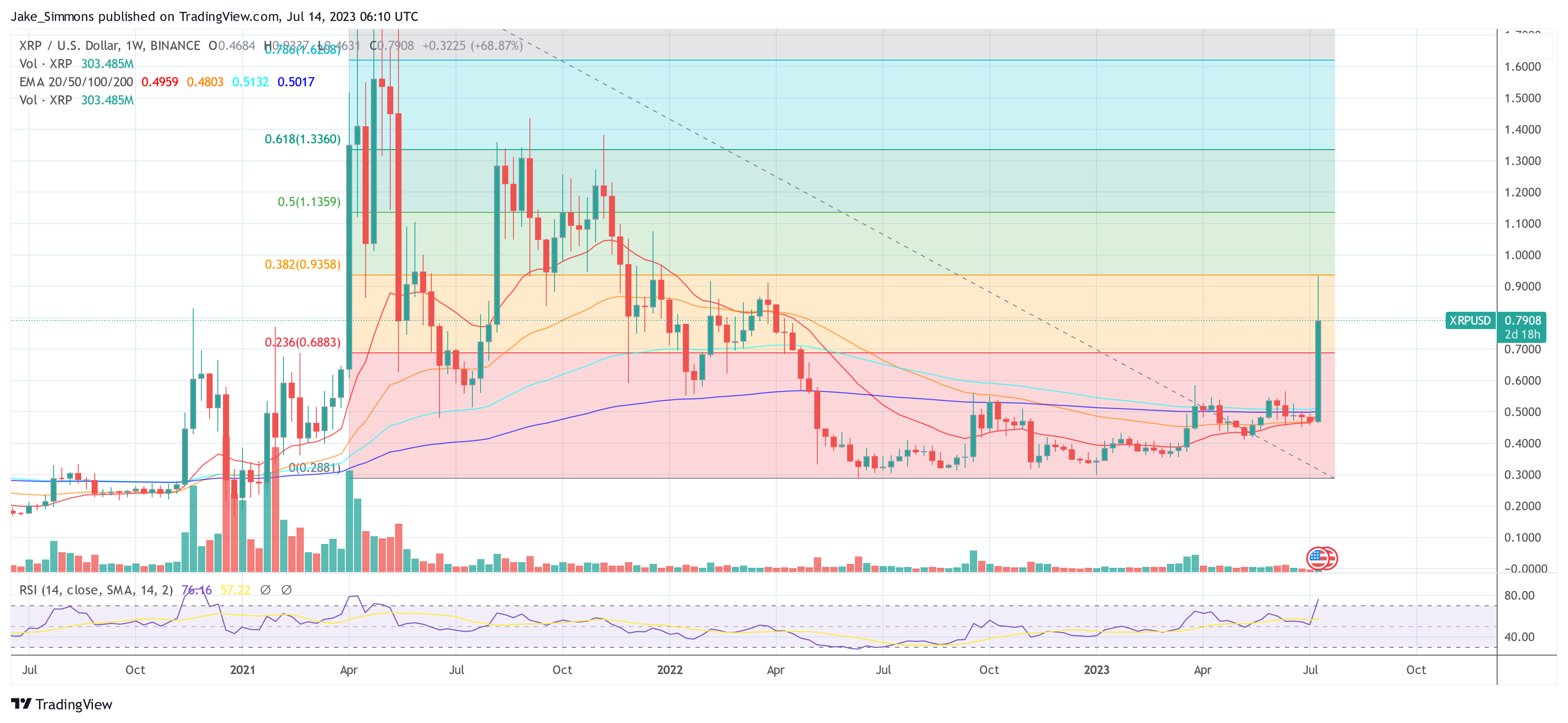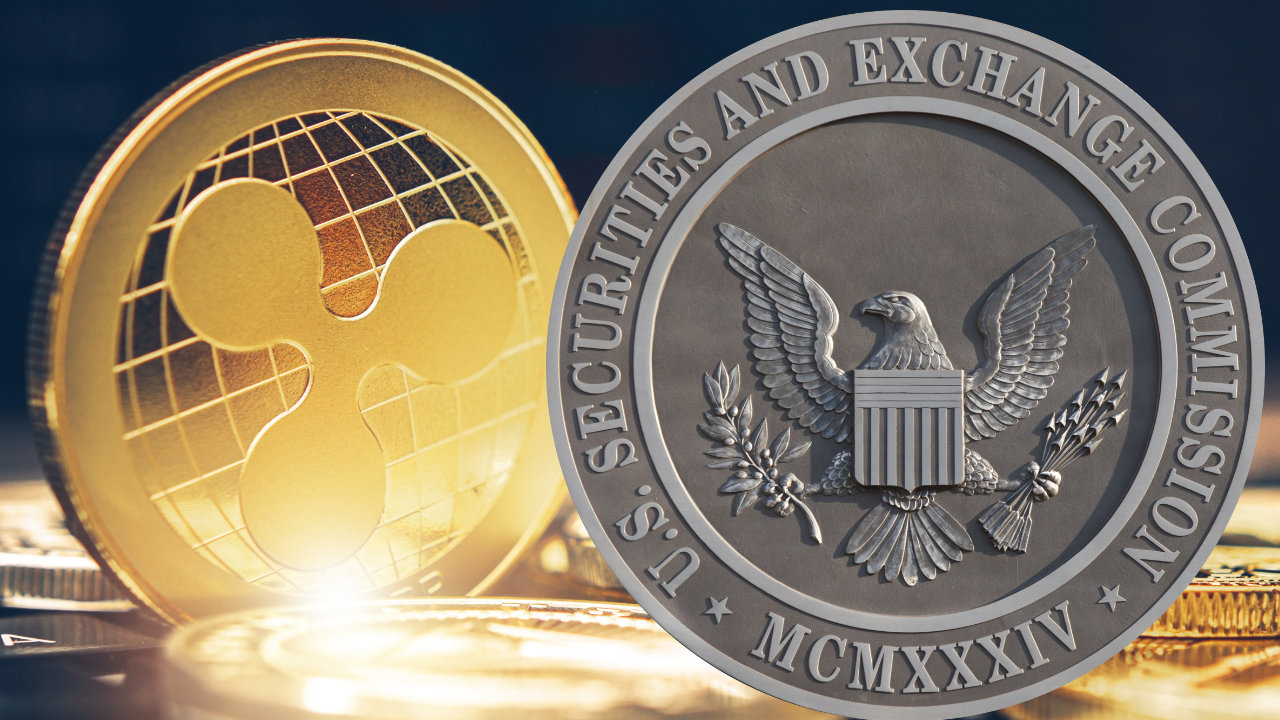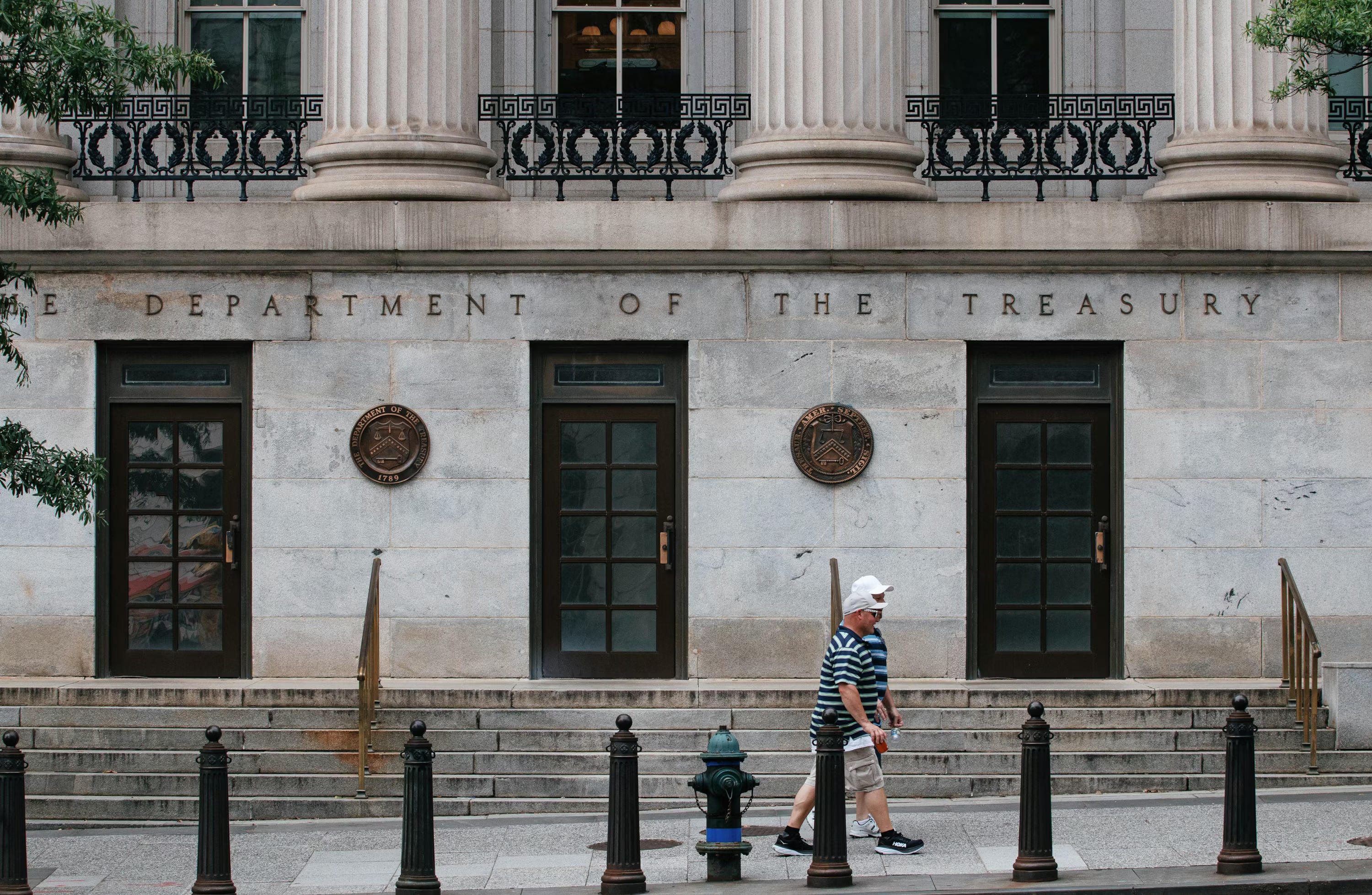
Yesterday’s summary judgment in the legal battle between Ripple Labs and the U.S. Securities and Exchange Commission (SEC) has sent shockwaves through the crypto industry. Ripple scored a huge partial victory.
The court ruling only deemed past direct XRP sales to institutional clients as securities. Stuart Alderoty, Ripple’s Chief Legal Officer, highlighted the significance of the court’s findings, stating, “The only thing the Court found constitutes an investment contract is past direct XRP sales to institutional clients.” This ruling has potentially far-reaching implications for the broader cryptocurrency ecosystem.
What’s Next For Ripple?
However, legal experts have cautioned against premature celebrations. Matt Corva, a lawyer at Ethereum’s ConsenSys, pointed out that despite the ruling, the battle is far from over, saying, “There will be appeals, but there will also be a pivot from the SEC to ‘we need new laws’ – which I think is the right outcome.” Corva’s sentiment echoes the sentiment of many in the industry who believe that the regulatory framework surrounding cryptocurrencies needs to be reevaluated.
Bill Hughes, another lawyer at Ethereum’s ConsenSys, expressed a similar view, emphasizing the need for legislative action, stating, “No more ‘Congress doesn’t need to do anything.’ That argument is DONE. The policy debate completely changes TODAY.” Hughes believes that the court ruling will shift the focus toward the necessity of updated regulations in the crypto space.
However, the court ruling has not only sparked a policy debate but has also raised questions if Ripple is completely satisfied with the judgment. Judge Torres ruled that Ripple had fair notice. “And a jury will be needed to decide whether Ripple execs aided and abetted this unregistered issuance,” added the lawyer.
While Ripple may have won this round, legal experts are also wary of potential appeals. Lawyer Stephen Palley urged caution, saying, “That order in the Ripple case is a partial summary judgment from a single district court judge. While persuasive, it’s not binding precedent on other courts and will likely be appealed and could be reversed.”
ConsenSys’ Hughes added that he would “be SHOCKED if SEC doesn’t immediately appeal this to the Second Circuit.”But Ripple may not be fully happy with the judgment either. CLO Alderoty stated that “there will be further court proceedings only on these institutional [XRP] sales per the Court’s order.”
Bryan Jacoutot, partner at Election Law Group, commented that the district court found that Ripple’s sale of XRP to institutional investors did amount to an unlawful security sale. Ripple received nearly $770 million from these sales, “which they will presumably be required to return/disgorge. Plus penalties/fines.”
Remarkably, a SEC spokesperson told Fox Business that they will “continue to review the decision” while emphasizing the partial victories in the agency’s favor.
“The court agreed with the SEC that the Howey test governs the securities analysis of crypto transactions and rejected Ripple’s made-up test as to what constitutes an investment contract […] Further, the court rejected Ripple’s fair notice argument, noting that the Howey test is clear and that claiming ignorance is not a defense to violating the securities law.”
Implications Beyond XRP
As the dust settles, the implications of this ruling reverberate beyond Ripple and XRP. Jacoutot warns that Ethereum Foundation and other projects may not be out of the woods yet. He explains, “Don’t want to diminish that this is definitely a win for Ripple. But it may be a short-lived victory. I think the Judge got the law wrong. But even if she didn’t, many projects (including Ethereum) remain exposed.”
Even if the judgment by Torres is upheld, it does not clear the path for the Ethereum Foundation. “Remember those institutional buyers that the Court found purchased unregistered securities? The pre-sale of Eth was ALOT like that,” says Jacoutot, adding that everyone knew they were buying ETH from the Ethereum Foundation. Also, the ETH purchased during the pre-sale were subject to lockup periods, which were significant in finding the Institutional Investors bought XRP as a security.
Yesterday’s partial victory of Ripple has propelled the XRP price to the 38.2% Fibonacci retracement level on the 1-week chart. At press time, XRP was trading at $0.79, up 68% since the ruling. Holding the 23.6% Fibonacci level at $0.69 should now be the bulls’ focus.



















